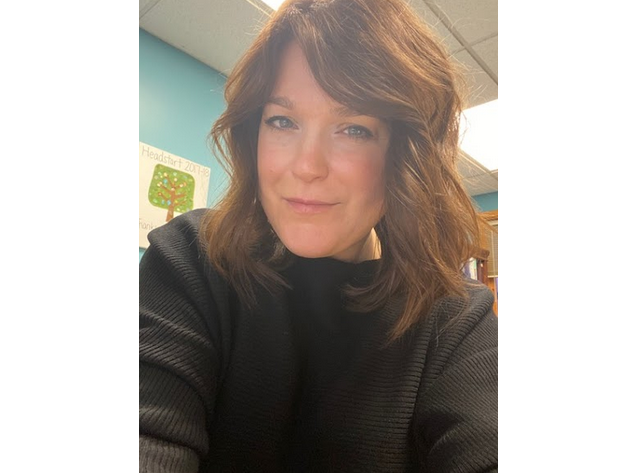“By we assessing the children within 45 days…we may see wherethat child might need some help and where can we help them (so that) by the timethey get to kindergarten the child is …ready for kindergarten and not repeating kindergarten! If we can actually get the service now, it’s better for the child’s developmental stage.” – Brooklyn College Study participant
Recently researchers from Brooklyn College at the City University of New York collaborated with the New York City Department of Education’s Division of Early Childhood Education (DOE DECE) and the Department of Health and Mental Hygiene’s Bureau of Early Intervention (DOHMH BEI). Focusing on predominantly Black and Afro-Caribbean families, the research sought to address gaps in the literature and racial inequities surrounding Early Intervention (EI) referrals. For example, the authors note that while 20.8% of the birth to three population identified as Black, according to the NYC DOHMH BEI of the 33,226 children who received general EI services in 2017, only 15% of children identified as Black received services (excluding evaluation, service coordination, assistive technology and transportation). As indicated in the opening quote, the mixed methods study voiced the experiences and recommendations of infant-toddler educators and leaders serving families in under-resourced communities.
The study brought to the forefront the underrepresentation of Black and Afro-Caribbean children in EI referrals and services in comparison to the representation of these children in the overall population of infants and toddlers in New York City. The research hoped to shed light on some of the reasons for this disparity.
Issues highlighted by the research include:
- Infant-Toddler teachers possess valuable knowledge of the EI referral process but there is also room for important professional development.
Teachers in the study voiced important knowledge of EI, family-centered practices, and child development, however the authors also found limitations in their knowledge about EI services that can be addressed to better support infants, toddlers, and their families. For example, a significant number of respondents did not know that when services are provided in isolation from the childcare teacher and the other children during a childcare program’s routine activities it is no longer considered a natural environment These isolated activities are outside of the typical experiences of infants and toddlers in childcare settings, and therefore there may be missed opportunities for young children to receive optimal support. One participant expressed the need for professional development about working with the families of infants and toddlers with disabilities: saying-
“I feel like we don’t get a lot of educational background on how to approach a parent or the right vocabulary usage that we can use.”
“If they do their Bachelor’s and their Master’s I think they need more credits in special ed. That 6 credits or whatever is not enough for them to handle the kind of situations that we’re faced with.”
Some of the infant-toddler educators were not certified in early childhood education or early childhood special education. Several of these educators suggested offering a certificate program that would prepare infant-toddler educators to connect families with Early Intervention Services.
- Service coordination between families, EI providers, and educators should be improved
The Individuals with Disabilities Education Act (IDEA) states that EI services must be selected in collaboration with parents; the Individualized Family Service Plan (IFSP) recognizes the family as the child’s greatest resource. The IFSP is a whole family plan, and the family is given the power to decide which other team members should contribute.
In this study, infant-toddler teachers and leaders expressed frustration at their lack of involvement and the families’ lack of communication in the EI Process. This included from the start of the EI referral to participation in the Individualized Family Service Plan meeting to the implementation of EI services to children in the school or home. This lack of communication, the authors argue, inhibits the ability of centers and leaders to support families during the EI process. This is crucial considering the amount of time infants and toddlers spend in the center and the relationships these providers seek to build with families. As one study participant summarized, “We are all working with children in our own little corners.”
- Early childhood educators have valuable cultural knowledge from their communities and relationships with families that can improve infants and toddlers’ access to early intervention.
Participants stressed the importance of a shared culture facilitating provider conversations with parents.
I appreciate the fact that I am Black and a lot of my kids are Black. That is something that unites them. and makes them [parents] feel more comfortable talking. If the tables were turned, if my child had a delay and the teacher was white, it’s just something that I just can’t explain, it’s innate I would feel more comfortable if that person was black. -Valera
Participants noted that families may not choose to access early intervention for many reasons, such as fear of stigmatization, family members disagreeing on what’s best for their child, and lack of money for group care before the child becomes eligible for 3K or Pre-K for All. Study participants made suggestions to address these barriers such as education opportunities for childcare providers and parents.
The commitment, knowledge, and care of early childhood educators was evident in the research in this study. As educators, we strive to do all we can to meet the needs of the children and families we encounter in our programs. The current research sheds light on some of the inequities that have long plagued our field. It also suggests how much more we can do when we build on the strengths within communities and equip educators with knowledge of the systems in place.
The research from the Brooklyn College at the City University of New York discusses important issues surrounding the inequitable distribution of Early Intervention services for children in New York City. While the study showcased the passion and wealth of knowledge present in the community, it also highlighted a number of opportunities to better meet the needs of children in under-resourced communities.
Erica Yardy is a Research Associate with the New York City Early Childhood Research Network, a project of the New York Early Childhood Professional Institute, and is a preschool teacher in White Plains, New York.



